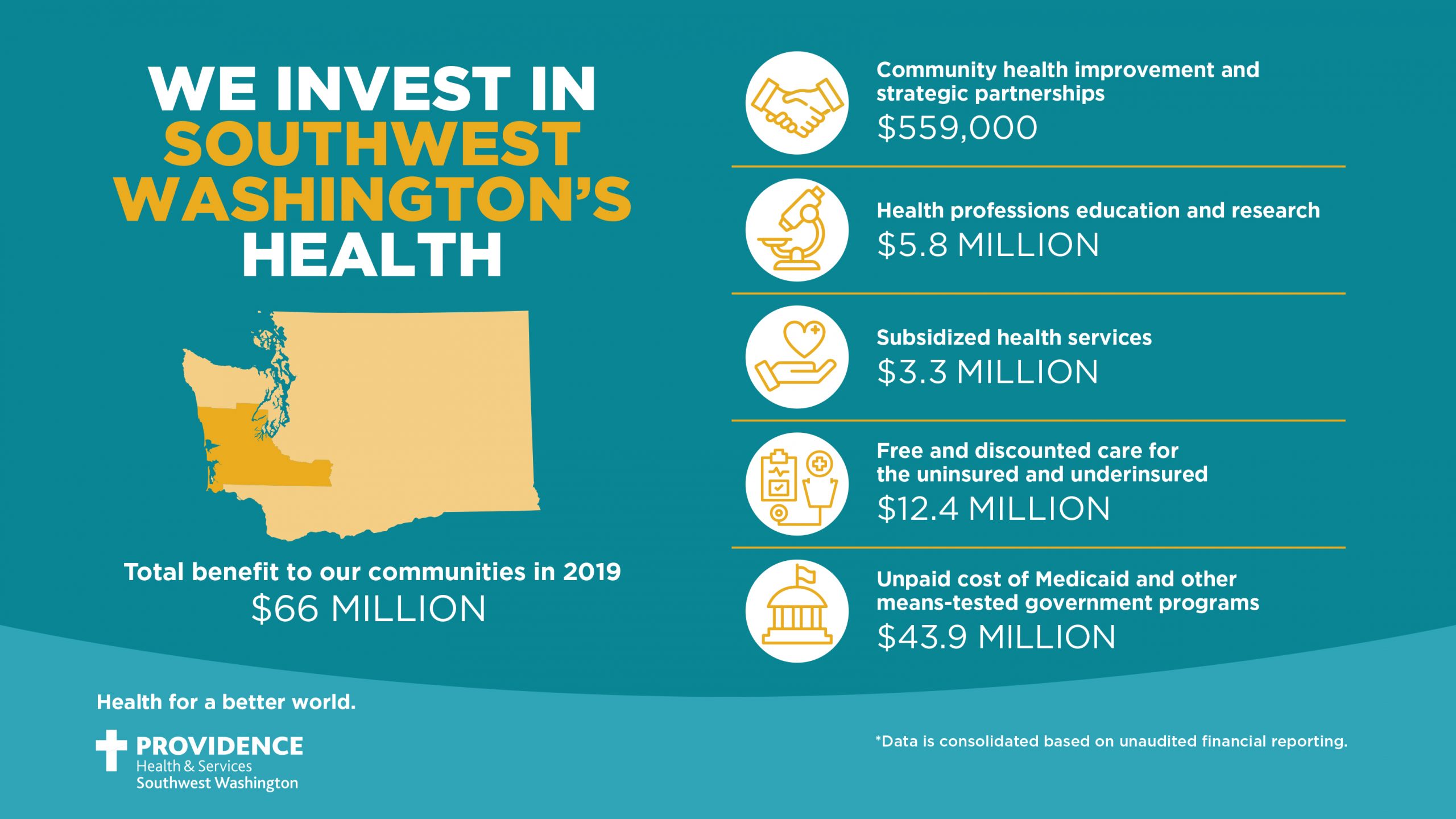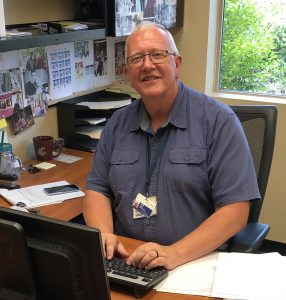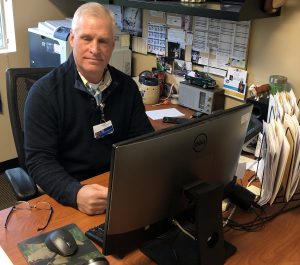Submitted by Providence
Caring for the community has never been more important. To achieve its vision of health for a better world, Providence invests in improving community health across all seven states it serves. In 2019 alone, Providence community benefit investment totaled $1.5 billion, which included $619 million in the state of Washington.

Called by their Mission, Providence is committed to serving all within the communities, especially the poor and vulnerable. View the Providence seven-state and individual state reports at here.
In Southwest Washington, the community benefit investment from Providence St. Peter Hospital, Providence Centralia Hospital and Providence Medical Group included more than $66 million. The total was made up of:
- $12.4 million free and discounted care for the uninsured and underinsured
- $43.9 million unpaid cost of Medicaid and other means-tested government programs
- $5.8 million health professions education and research
- $3.3 million subsidized health services
- $559,000 community health improvement and strategic partnerships
Program Saves Patients Millions
Beyond the numbers, Providence community benefit is exemplified by the caregivers who serve the patients. One example is the Providence Medication Assistance Program (MAP).

John Hylton and Rick Carns are repeatedly called angels, or the “answer to our prayers.”
“We get calls or cards regularly,” said Hylton, MAP manager. The duo works with patients who can’t afford or have been denied expensive drugs and finds programs to get them at no or low costs. In 2019, they filled 1,286 prescriptions for oral medication alone, and saved patients more than $3.5 million.
“We’re not ‘at the bedside’ caregivers, but I truly believe we save lives,” Hylton said. “We’ve been told that. I’ve had patients flat out say, ‘You got me that drug and if it wasn’t for you I wouldn’t be alive today.’”
A specific example is Alan, who was diagnosed with a rare autoimmune disease in 2013. He thought he was in remission until November of 2018 when it flared up. His lung capacity was compromised. After trying several drugs which either made the disease worse or just didn’t work, his only option was Rituxan and he was scheduled for seven infusions, at a cost of about $25,000 per treatment.
Alan works full time and is fully insured. His insurance covered the first three infusions, but then communicated that because he didn’t have cancer, the remainder of his treatments would not be covered.

“I tried every avenue possible. I talked with my union, state legislators – it seemed like every person on the planet – and the insurance company denied my appeal twice,” Alan said. He had a $79,106 bill and other procedures in front of him. In a last ditch effort, he reached out to Hylton and the MAP program.
“I remember he was telling me his story and was getting worked up and started breathing heavy,” Hylton said. “I just said ‘Alan, stop, I got this for you. Your doctor appealed this and said it was medically necessary. I can help.’ ”
Hylton enrolled him in the program and called him later to tell him he was able to get rid of $78,900 of that original bill. The out-of-pocket cost for the infusions would be around $200.
“It was like lifting a truck off my back,” Alan said. “I can’t say enough about those guys and that program. And now that I’m enrolled, if I need other assistance I can go back and I am still approved.”



















































